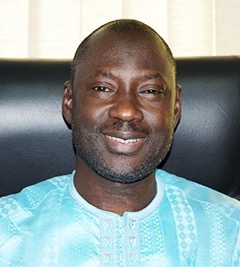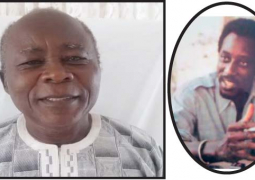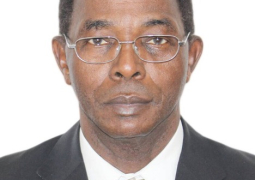
The Commission stated in a recent press release that it was pleased to announce that “the Social Security and Housing Corporation (SSHFC) has successfully met some of the performance criteria outlined in their signed Performance Contract with the government”, hence the SSHFC “is sufficient to qualify for the payment of a one-month bonus to all staff members”.
This exemplary and sterling performance of SSHFC has demonstrated that with the right management in place, SOEs can serve as a profitable trajectory to spur economic growth and development for a country. A well managed SOE can continue to provide essential state services, increase national revenue, create jobs and alleviate poverty and suffering in a country.
There are however cases of ill-performed SOEs, many an example of such around the world, which has given the impression that SOEs, especially in Africa, are born to fail and go moribund. But the reason they fail to perform well and how it happens are a question of improper management and lack of motivating incentives.
Furthermore, there seems to be a neglect or lack of consideration for certain challenges of SOEs; key among them are the ‘soft budget constraint’, the ‘principal-agent problem’ and the ‘free-rider problem’.
The soft budget constraint refers to the situation where SOEs are made unduly reliant on government subsidies and bailouts to keep them up and running, while they continue to underperform. That is to say underperforming SOEs would continue to perform poorly as long as government continues to subsidise them without putting proper mechanisms in place to spur their performance.
The principal-agent problem relates to the fundamental knowledge and information gap that exist between the owners and workers of such enterprises; that is, leaving many things inadequately explained, arranged or organised between the principal (the owners) and the agents/managers (the workers) of SOEs.
There is also some indifference exhibited by the legal owners or principals of SOEs, who are actually the citizens, by not duly checking the affairs of their SOEs, meaning effectively monitoring services of the hired managers. This deficiency in the operation of SOEs, also referred to as the ‘free-rider problem’, is succinctly explained by economist and author Ha-Joon Chang in his book Bad Samaritans: the Guilty Secrets of Rich Nations & the Threat to Global Prosperity. He states: “Individual citizens, even if they theoretically own the public enterprises, do not have any incentives to take care of their properties (the enterprises in question) by adequately monitoring the hired managers. The problem is that any increase in profit resulting from the extra monitoring of the SOE managers by some citizens will be shared by every citizen, while only those citizens who do the monitoring pay the costs (e.g., time and energy spent in going through company accounts or alerting the relevant government agencies to any problems). As a result, everyone’s preferred course of action will be not to monitor the public enterprise managers at all and simply to ‘free-ride’ on the efforts of the others. But, if everyone free-rides, no one will monitor the managers and poor performance will be the outcome. The reader will immediately understand the ‘free-rider problem’ if he tries to recall how often he himself has monitored the performance of any of his country’s SOEs (of which he is one of the legal owners).”
Also, while the World Bank attests that SOEs play a major role in many developing and emerging economies around the world, it as well states that the mixed institutional mandates of SOEs and their political importance often pose performance and governance challenges, which can mute transparency and accountability, making oversight and regulation difficult.
Despite that, having in place the right team or personnel with substantive support, good incentives and motivation, SOEs can move mountains and register the good needed of them to the state.
The good performance record put out by the SOE Commission evidently supports the fact that SOEs can do well within the backdrop of a well structured operational system bolstered by such instruments as performance contracts. The SSHFC received a pat on the back for having done well in key areas as financial management, service delivery, operational efficiency, and compliance with governance standards.
In a recent statement, the commission states that “the Social Security and Housing Corporation (SSHFC) has successfully met some of the performance criteria outlined in their signed Performance Contract with the government”.
It added: “This achievement is a testament to the hard work, dedication, and commitment of SSHFC’s staff, and management is striving to meet the performance standards set forth in the agreement. The SOE Commission’s assessment focused on various key performance indicators, including financial management, service delivery, operational efficiency, and compliance with governance standards.”
This further serves to evidently prove that SOEs can do well if well managed, deliver good services, be productive, create employment and alleviate poverty in a country. China and several Asian and western countries could boast of successful and productive SOEs that contribute massively to their economic growth and national development.
Save for the mixed institutional mandates of SOEs and their political role that often pose performance and governance challenges, World Bank also confirms that SOEs play a major role in many developing and emerging economies, where governments use them to achieve economic, social, and political objectives - to deliver and extend access to services, fill gaps in markets, develop key sectors or regions, and provide employment.
While government could always use or take as a last resort the decision to privatise or sell SOEs when they prove to be a liability, they could as well be very proactive in applying effective measures to ensure SOEs serve their purposes well.
It is really not impossible for a shrewd and proactive government to apply effective measures, such as performance contract, to motivate SOEs to perform well and deliver the good as expected of them, which is what the government via the the Ministry of Finance and Economic Affairs and the SOE Commission has done to let public enterprises register impressive performance, such as the SSHFC has done that has earned it the recognition and appreciation of the Commission.
The strategic performance contract system and its incentives put in place by the SOE Commission is expected to fuel performance of public institutions in the country.
SOEs, it is considered, can really work and deliver well when the right modalities are put in place - the policies, the incentives, the correct management with the right mindset.
The positive performance of SSHFC has shown that with a good management that is guided and armed with productive mindset, SOEs can contribute handsomely and substantially to the national economy.
Thus, the SOE Commission also deserves a pat on the back, for ensuring SOEs adhere to their performance contracts and achieve their strategic objectives, and for fostering transparency, accountability and improved service delivery across the public sector.
In the same vein, the SSHFC has continued to not only enhance social security and housing services for the people, but also contribute to the overall economic stability and development of the country.





